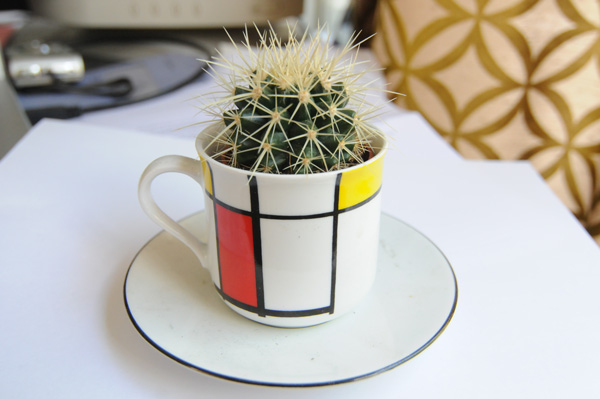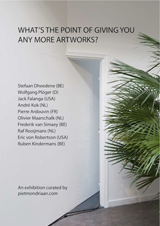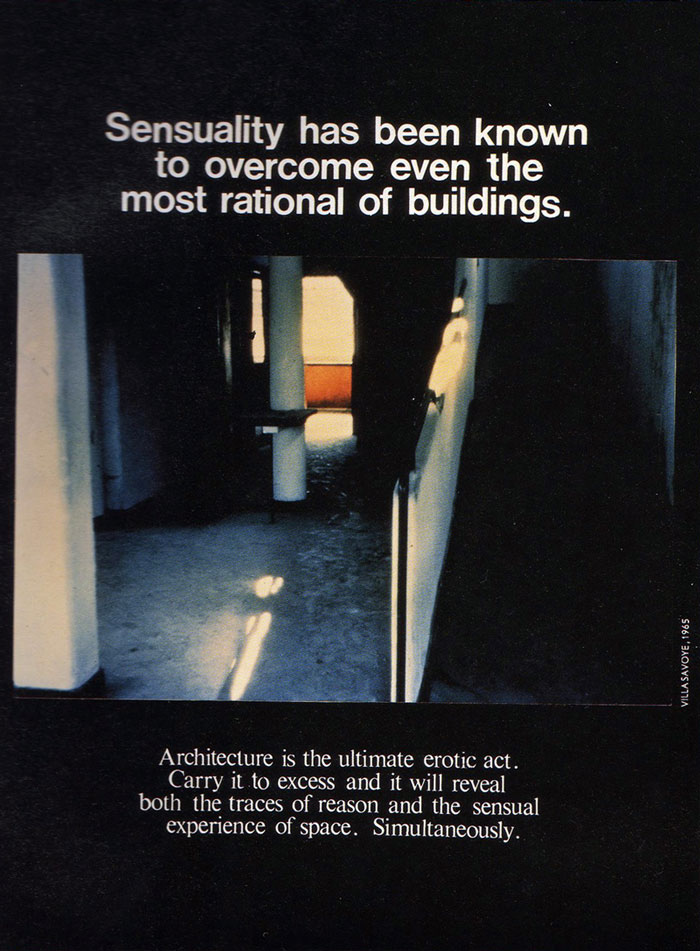
Bernard Tschumi, ‘Advertisements for Architecture’ (1976-1977)
Several early theoretical texts were illustrated with Advertisements for Architecture, a series of postcard-sized juxtapositions of words and images. Each was a manifesto of sorts, confronting the dissociation between the immediacy of spatial experience and the analytical definition of theoretical concepts. The function of the Advertisements —reproduced again and again, as opposed to the single architectural piece—was to trigger desire for something beyond the page itself.
By mh
|
Posted in Composition
|
Also tagged action, advertisements, America, architecture, Bernard Tschumi, black, building, collection, design, disable, DIY, erotic, france, fuckem, house, magazine, print, sensual, text, theoretical, theory, unknown, USA, villa savoye, white
|
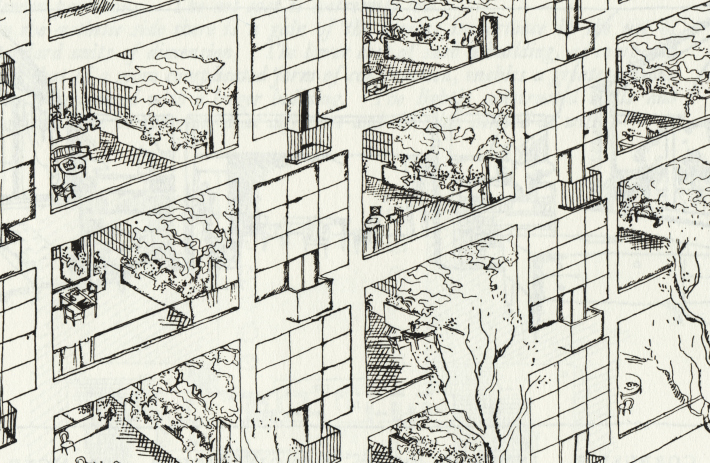
Le Corbusier, ‘Freehold maisonettes – the hanging gardens’
By mh
|
Posted in Composition
|
Also tagged apartments, architecture, black, design, DIY, drawing, france, freehold, gardens, grid, hanging, ideal, maisonettes, modernism, romance, society, structure, switzerland, together, utopia, white
|
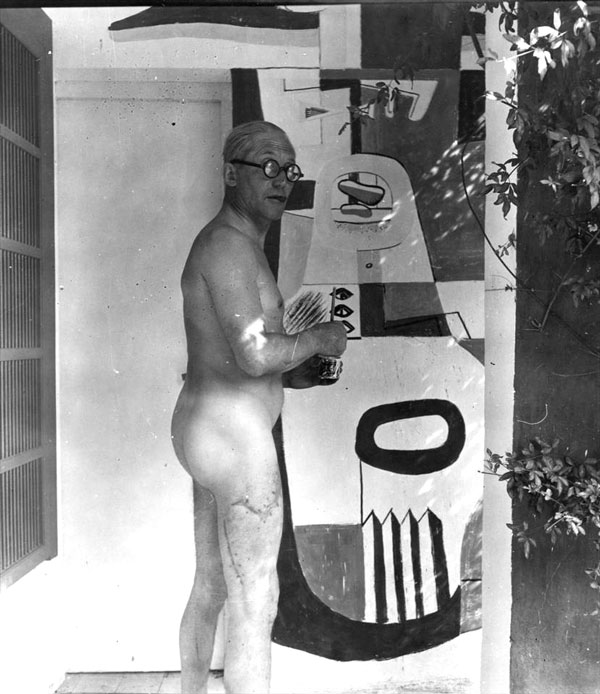
Le Corbusier painting a mural on Eileen Gray‘s E-1027 house.
While staying as a guest in the house in 1938 and 1939, Le Corbusier painted bright murals on its plain white walls, sometimes while nude. Infuriated, Gray considered this a defacing of her work and deemed the murals outright vandalism.
Whether he painted his murals out of admiration for Gray’s work or out of jealousy of her accomplishment we still don’t know.
By mh
|
Posted in Composition
|
Also tagged achievement, action, architecture, black, bright, color, colour, damage, defacing, destroy, DIY, E-1027, Eileen Gray, evidence, found, france, French, fuckem, fun, house, irish, jealousy, light, modernism, mural, naked, nude, painting, performance, photograph, romance, scars, space, swiss, the wild, trash, vandalism, wall, white, woman
|
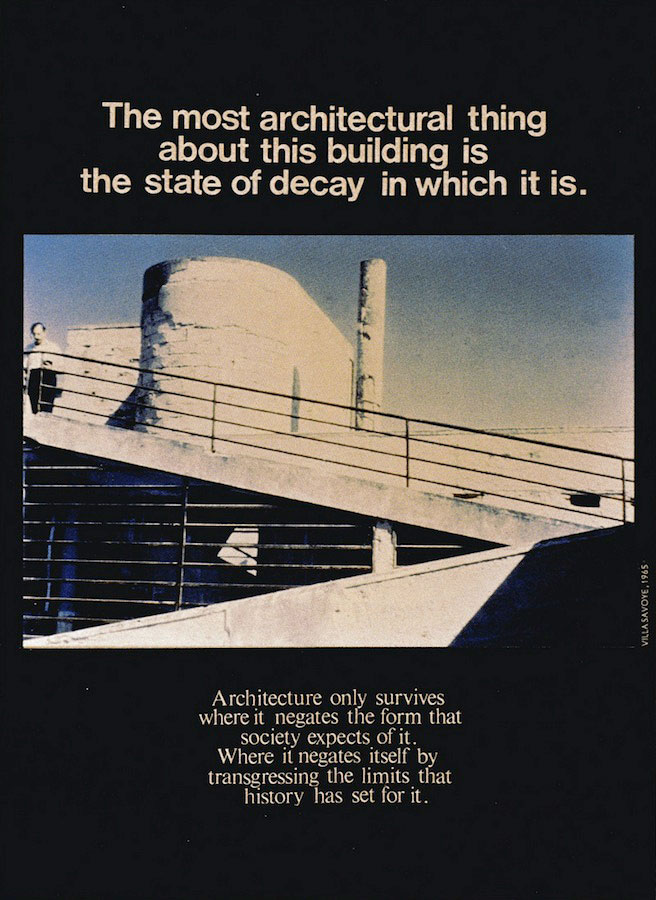
From ‘Advertisements for Architecture’ (1976-77) by Bernard Tschumi.
Tschumi illustrated several of his early theoretical texts with Advertisements for Architecture, a series of postcard-sized juxtapositions of words and images. Each was a manifesto of sorts, confronting the dissociation between the immediacy of spatial experience and the analytical definition of theoretical concepts.
By mh
|
Posted in Composition
|
Also tagged action, advertisement, american, architecture, Bernard Tschumi, black, building, collection, critique, decay, definition, design, desire, DIY, experience, fuckem, history, images, limits, manifesto, photograph, society, space, text, theory, unknown, villa savoye, words
|
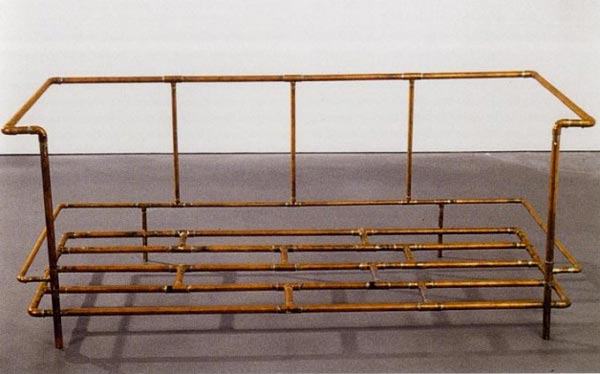
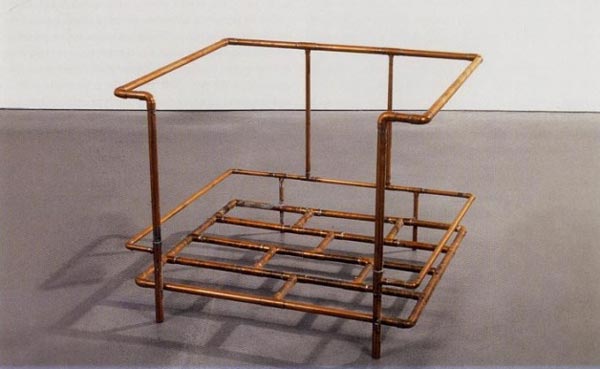
‘Le Corbusier sofa’ and ‘Le Corbusier chair’ (1990) by Jorge Pardo
By mh
|
Posted in Abstraction
|
Also tagged american, architecture, barrier, chair, copper pipes, cuba, design, DIY, drawing, found, frame, fuckem, fun, function, furniture, jorge pardo, sofa, the wild, trash, tubes, unknown, wire
|
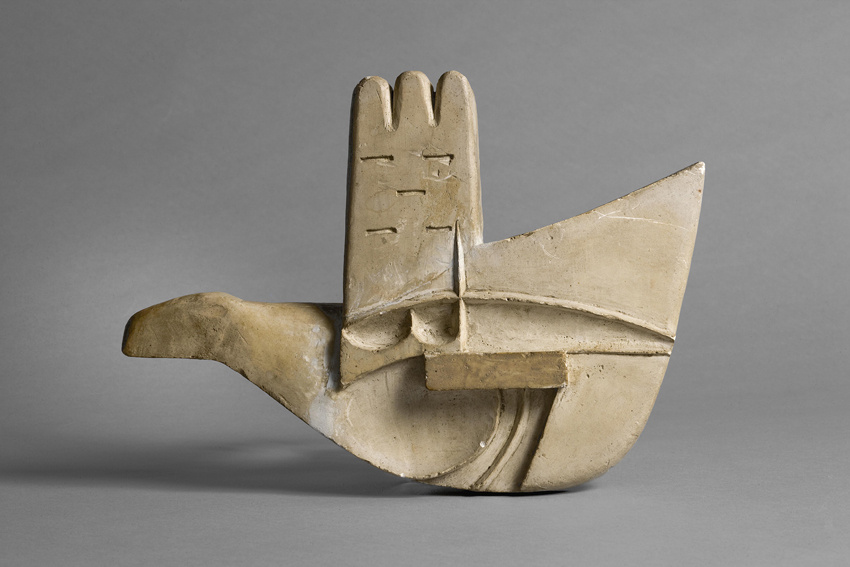
A model of the Open Hand Monument (ca. 1956 – 1959), by Le Corbusier.
By mh
|
Posted in Abstraction
|
Also tagged architect, chandigarh, design, French, give, government, India, leitmotif, model, open hand monument, peace, prosperity, public art, public space, romance, sculpture, swiss, symbol, symbolic, take, theme, unity, unknown, wall
|
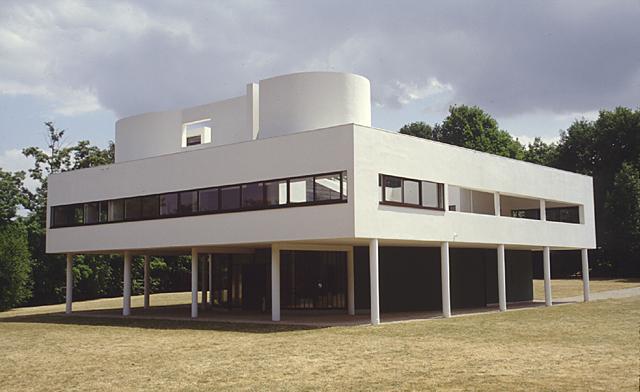
‘Villa Savoye’ (1929) by Le Corbusier.
Considered by many to be the seminal work of the Swiss architect Le Corbusier, this house is seen as one of the ultimate ‘machines for living’.
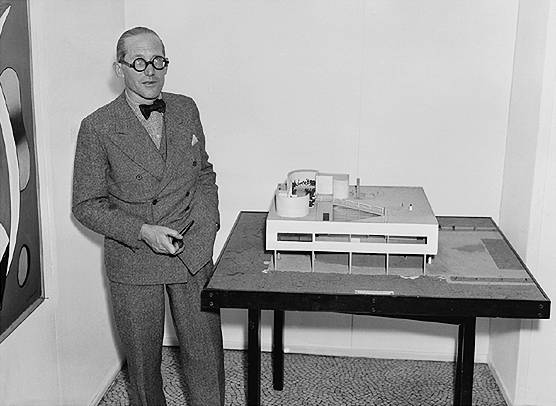
Le Corbusier with a model of Villa Savoye.
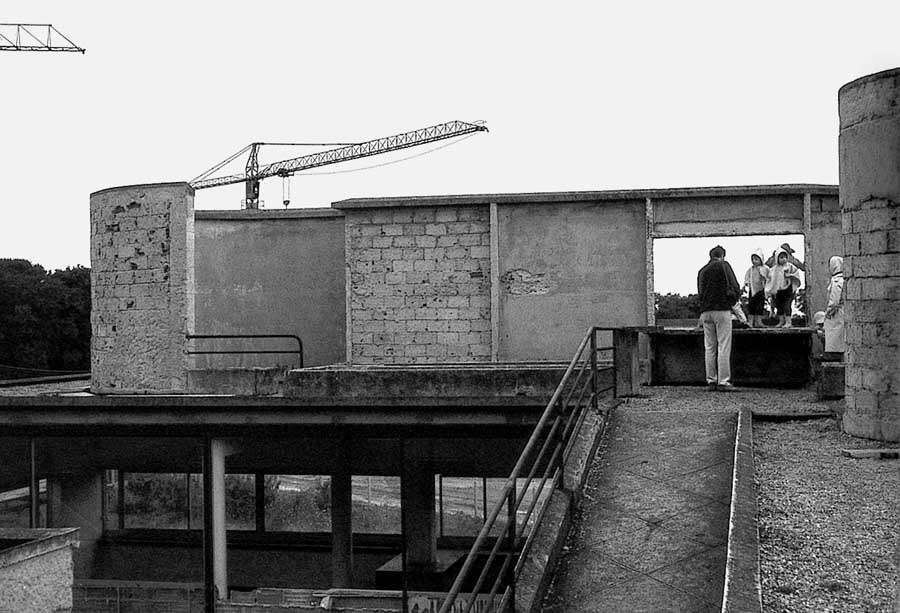
The construction of the house.
By mh
|
Posted in Composition
|
Also tagged architecture, clear, culture, france, house, integrated, international style, machine for living, meadows, nature, opposition, poissy, public art, public space, rationality, rectangular, sculpture, shapes, surroundings, swiss, unknown, villa savoye, wall, white
|
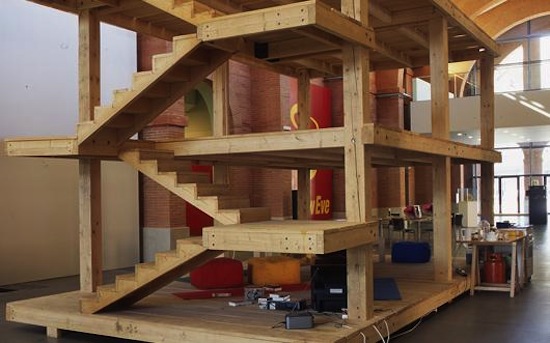
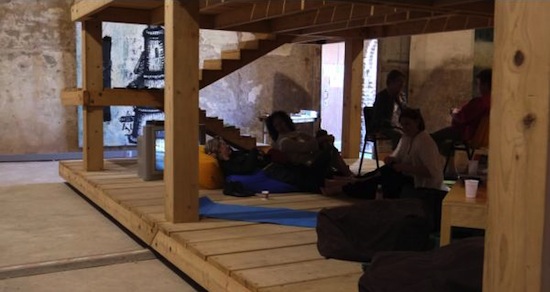
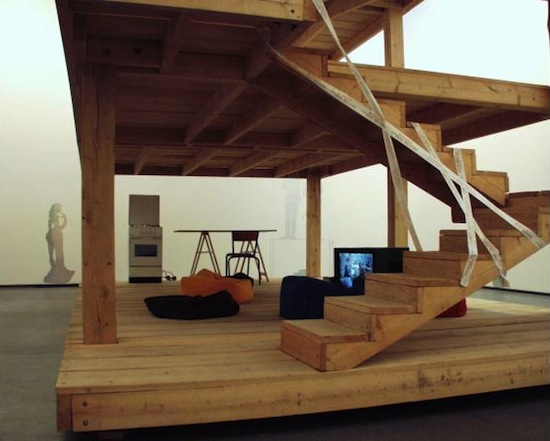
Rirkrit Tiravanija, ‘Dom-ino’ (1998)
In Rirkrit Tiravanija’s replica of the Dom-ino concept (1915) by le Corbusier, the spectator becomes the inventer and the actor of his own environment, in the interaction with his fellow visitor. The lower platform is equipped with a CD and cassette player, a TV, a kitchen corner with table and butagaz-cooker, a low table with poufs. The visitors are invited to use the house as they wish, and to share what they bring or find with the others.
By mh
|
Posted in Composition
|
Also tagged berlin, chiang mai, concept, dom-ino, found, hangout, kitchen, levels, New York, participation, performance, platform, replica, rirkrit tiravanija, romance, TV, unknown, wood
|
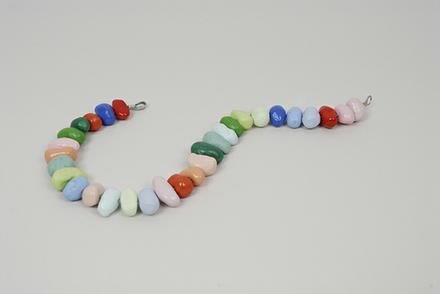
Angela Bulloch, ‘AbraCadereSalubra’ (2009)
Edition for Texte zur Kunst.
For Texte zur Kunst Bulloch produced a chain consisting of 30 beads, that have been cast in tin after handmade models and have then been handpainted. According to two preset systems, related to Cadere and Le Corbusier, these beads have been connected on a metal string.
By mh
|
Posted in Composition
|
Also tagged andre cadere, angela bulloch, beads, chain, collection, colors, DIY, edition, jewelry, sculpture, systems, tin, unknown
|
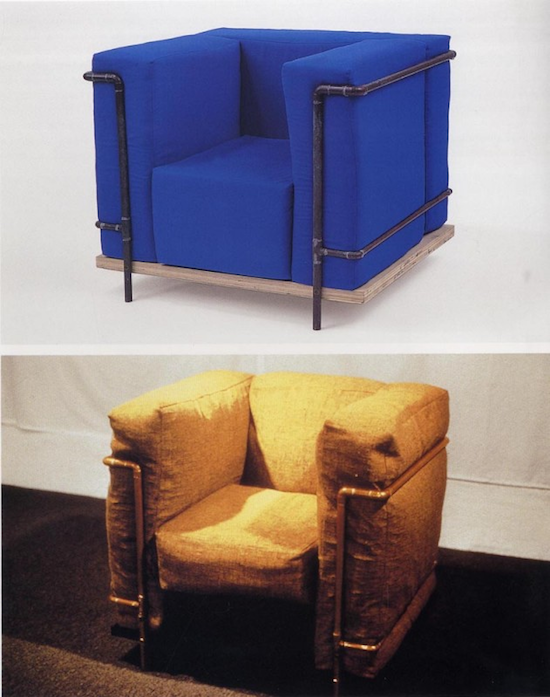
Jorge Pardo, ‘Me and my mum’ (1991)
A refabrication of Le Corbusier’s classic chair and loveseat using industrial copper tubing, rather than the polished steel tubes that form the core of the original.
By mh
|
Posted in Composition
|
Also tagged America, architecture, chair, classic, clumsy, copper, craft, cuba, design, DIY, family, found, fuckem, fun, industrial, jorge pardo, light, loveseat, personal, polished, portrait, refabrication, romance, sculpture, trash, unknown, USA, value
|

